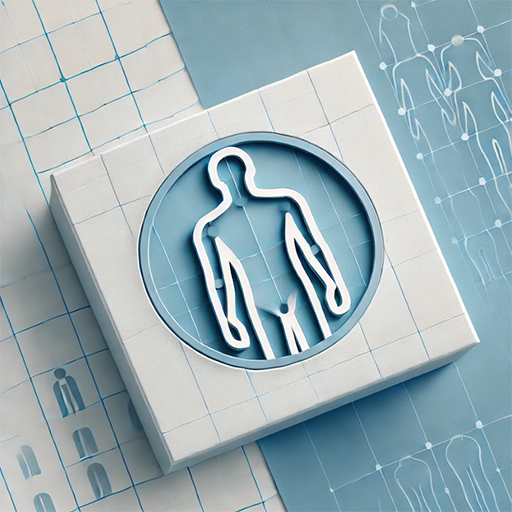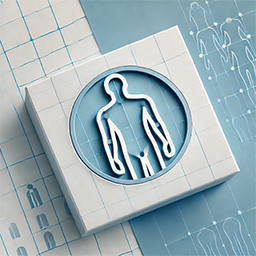Maintaining a healthy weight isn’t just about appearance—it plays a big role in how you feel and live every day. Losing even a small amount of extra weight can make a big difference in your health. It can lower your risk of serious chronic diseases, such as heart disease, type 2 diabetes, high blood pressure, and even certain types of cancer.
In this post, we’ll take a closer look at how weight loss supports your body and helps prevent these conditions.
We’ll break everything down in a clear, friendly way—because starting your health journey should feel empowering, not overwhelming.
Why Weight Matters for Your Health
Carrying extra weight puts added pressure on your body. It forces your organs to work harder and can lead to long-term inflammation. Over time, this strain increases your risk for serious health problems that can affect your daily life.
Excess weight is linked to:
- Type 2 diabetes
- High blood pressure
- Heart disease
- Stroke
- Certain cancers
- Sleep apnea
- Joint pain
- Liver disease
The good news? You don’t have to lose a lot of weight to see results. Dropping just 5% to 10% of your body weight can lead to big health benefits. For example, if you weigh 200 pounds, that means losing just 10 to 20 pounds. Small changes can lead to a big impact.

How Weight Loss Reduces the Risk of Chronic Diseases
Let’s take a closer look at how losing weight can directly improve some of the most common and serious chronic health conditions. Understanding these connections can help you stay motivated on your weight loss journey.
1. Weight Loss and Type 2 Diabetes
Being overweight is one of the biggest risk factors for type 2 diabetes. Extra body fat—especially around your belly—makes it harder for your body to use insulin the right way. When this happens, blood sugar levels start to rise, which can lead to diabetes over time.
Losing weight can help by:
- Improving how your body uses insulin
- Lowering your blood sugar levels
- Reducing your need for diabetes medication
The best part? Losing just 10 to 15 pounds can delay or even prevent the start of type 2 diabetes. Every small step makes a big difference.
American Diabetes Association: Preventing Type 2 Diabetes
2. Heart Health and Weight Loss
Heart disease is the number one cause of death in the United States. Carrying extra weight can raise your blood pressure, increase your cholesterol, and boost triglyceride levels. All of these put added strain on your heart and increase your risk for heart problems.
Losing weight can:
- Lower bad (LDL) cholesterol
- Raise good (HDL) cholesterol
- Reduce high blood pressure
- Ease the workload on your heart
Weight loss also helps lower inflammation in the body—a key factor in the development of heart disease. Taking steps to lose weight is one of the best ways to protect your heart.
Heart.org: Losing Weight for Heart Health
3. Lowering Blood Pressure
High blood pressure—also called hypertension—often comes with no warning signs. But if left untreated, it can lead to serious health problems like stroke, heart attack, or kidney damage.
Losing weight helps manage blood pressure by:
- Reducing strain on your blood vessels
- Improving overall blood flow
- Supporting healthy kidney function
The best part? Losing just 10 pounds can lower your blood pressure by as much as 5 mmHg. Even small changes can have a big impact on your heart health.
4. Weight Loss and Joint Health
Carrying extra weight puts added pressure on your joints—especially in your knees, hips, and lower back. Over time, this stress can lead to joint pain, stiffness, and even osteoarthritis, a common form of arthritis that breaks down joint cartilage.
Losing weight can help by:
- Reducing pain and stiffness
- Lowering swelling in the joints
- Decreasing the risk of needing joint surgery
Here’s a helpful fact: for every pound you lose, about 4 pounds of pressure is taken off your knees. That means even a small weight loss can bring big relief.
5. Reducing Cancer Risk
Carrying excess weight increases the risk of developing several types of cancer, including:
- Breast cancer
- Colon cancer
- Kidney cancer
- Esophageal cancer
- Pancreatic cancer
Fat tissue produces hormones that can promote the growth of certain cancers. By losing weight, you can help lower these hormone levels and reduce inflammation in your body. These changes can play an important role in lowering your risk of cancer.
National Cancer Institute: Obesity and Cancer
6. Better Sleep and Breathing
Sleep apnea is a condition that’s common among people who are overweight. It occurs when the airway becomes blocked while you sleep, leading to interrupted breathing and poor-quality rest.
Losing weight can help by:
- Reducing fat around your neck
- Opening up your airways
- Improving oxygen flow throughout your body
Getting better sleep means you’ll feel more energized, have a stronger immune system, and lower your risk for chronic health issues. Weight loss can make a big difference in your quality of life.

Other Benefits of Weight Loss
Losing weight doesn’t only benefit your body—it can also have a positive impact on your mind and mood.
The emotional and mental benefits of weight loss include:
- Increased self-confidence
- Reduced feelings of anxiety and depression
- Improved focus and concentration
- Better quality sleep
When you feel good mentally and emotionally, you’re more likely to stay active, eat nutritious foods, and maintain your weight in the long run. The mental boost can make your health journey even more rewarding.
Easy Ways to Start Losing Weight
Losing weight doesn’t mean following strict diets or spending endless hours at the gym. In reality, making small, manageable changes to your everyday habits can lead to impressive results over time. By gradually improving what you eat and increasing your activity levels, you can build healthy habits that stick and make a lasting positive impact on your overall health and well-being.
Here are a few tips to help you begin:
Eat Smart:
- Fill half of your plate with a variety of colorful vegetables
- Choose lean sources of protein, like chicken, beans, or eggs
- Opt for whole grains, such as brown rice, oats, and quinoa
- Reduce your intake of sugary snacks and processed foods
These simple choices can help you fuel your body with the nutrients it needs while supporting your health goals.
Move More:
- Aim for at least 30 minutes of physical activity on most days
- Take a walk after meals to aid digestion and boost energy
- Try fun activities like dancing, biking, or swimming—whatever you enjoy most
- Choose the stairs instead of the elevator for a simple way to stay active
Adding more movement to your day can help improve your health, boost your mood, and keep you on track with your fitness goals.
Build Healthy Habits:
- Drink water instead of sugary sodas to stay hydrated and reduce calorie intake
- Eat slowly and pay attention to your body’s hunger cues—stop when you feel full
- Plan your meals and snacks in advance to make healthier choices throughout the day
- Aim for 7–9 hours of sleep each night to support your overall health and energy levels
Small, consistent changes like these can help you build lasting habits that support your health and well-being.
Stay on Track: Set Realistic Goals
Don’t try to lose 20 pounds in one week. That’s not healthy or realistic.
A safe and sustainable approach to weight loss is to aim for about 1–2 pounds per week.
Start by setting short-term goals, such as:
- “I will walk for 15 minutes every day.”
- “I’ll eat one piece of fruit with lunch.”
- “I’ll cook dinner at home three nights this week.”
By focusing on small, achievable goals, you can build healthy habits that lead to lasting weight loss. Celebrate each small win along the way—they really do add up!

When to Talk to a Doctor
If you’ve struggled to lose weight on your own, it’s a good idea to talk to a healthcare provider. They can support you by:
- Checking for any underlying health conditions that may affect your weight loss
- Helping you set realistic and safe goals
- Recommending a personalized diet or exercise plan
- Discussing options like medications or surgery if necessary
Remember, you don’t have to go through this journey alone. A healthcare provider can be an important partner in reaching your weight loss goals.
Conclusion: Your Health Is Worth It
Losing weight isn’t just about looking good in your clothes—it’s about enhancing your overall health and enjoying a longer, more fulfilling life. By making even small, simple changes to your daily habits, you can reduce your risk of developing serious health conditions and feel your best every single day. These changes may be the key to a healthier and happier future.
You have the power to take charge of your health, one simple step at a time.
What healthy change will you focus on this week?
We’d love to hear from you! Share your goal in the comments, and we’ll be here to cheer you on!



